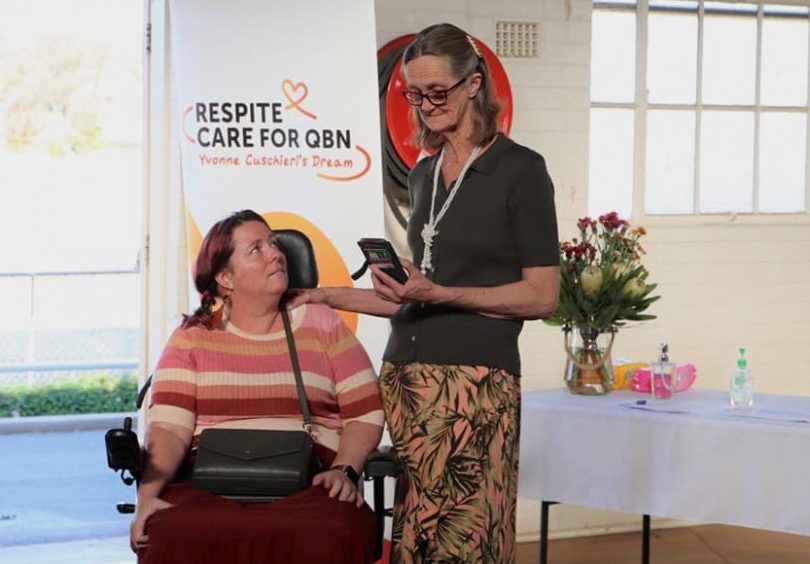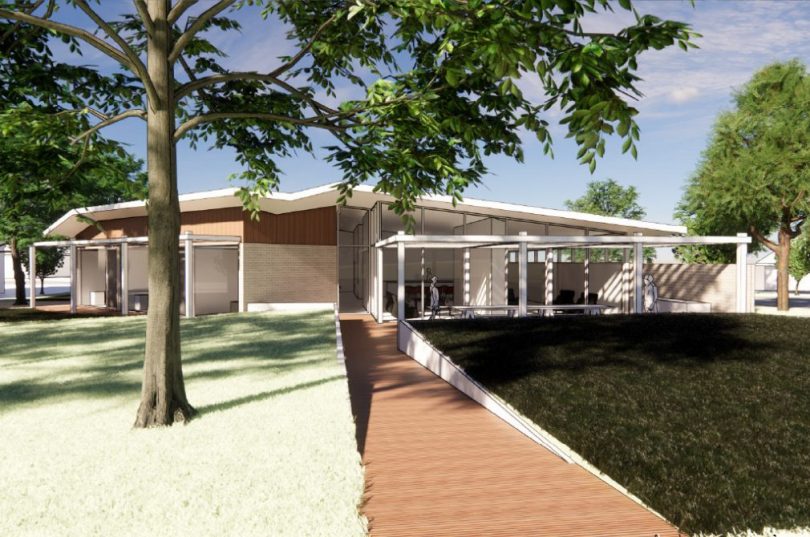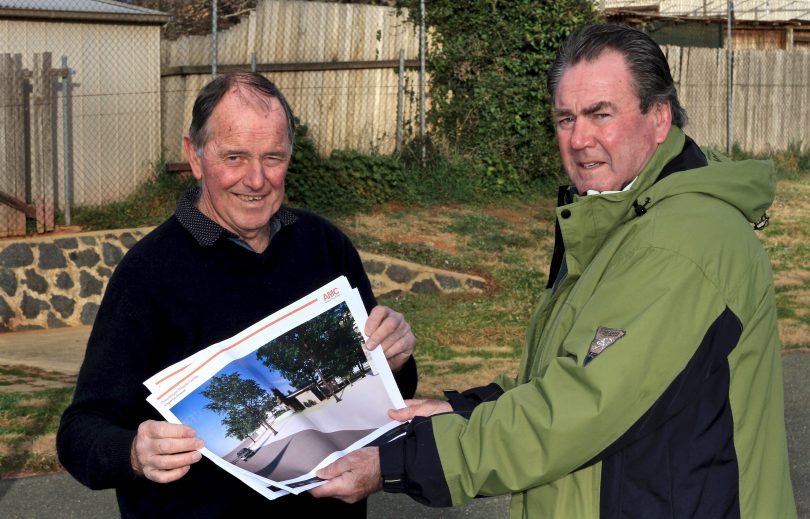
Tascha Loadsman with Gillian Southwell at a fundraiser for the Respite Care for Queanbeyan on the weekend. Photo: Supplied.
The mind of Queanbeyan’s Tascha Loadsman is still razor-sharp, but the 46-year-old can no longer speak for herself as her body slowly recedes to the ravages of motor neurone disease (MND).
Last weekend, Tascha called on a friend during a fundraising high tea to help tell her story and make the case for a respite care facility in the region.
Land in Queanbeyan and government funding have been secured for the $1.5 million facility that will provide short-term residential care for people aged 18 to 60 suffering from a terminal or chronic illness and their carers in the Queanbeyan-Palerang region.
The challenge now is to find an additional $1 million a year to keep the six-bedroom facility operational.
The respite care facility is also the dream of the ‘founding mother’ of the Rise Above Cancer Support Group, Yvonne Cuschieri, whose own battle with terminal cancer has seen her moved out of palliative care and into a hospice this week. Yvonne’s 53-year-old son Steven also died in an aged care facility after a fall following a brain tumour diagnosis.
Through her friend Gillian Southwell, Tascha said her body began to shut down at about the same time the country began its first steps of recovery from the COVID-19 pandemic.
“My leg seemed to lose some range of movement. My mind was giving it the message but it refused to comply,” Tascha said.

An artist’s impression of the proposed respite care facility in Queanbeyan. Image: Supplied
Following months of tests, Tascha was diagnosed with motor neurone disease in December 2019 and her body began to decline slowly.
“The best description I can give you is it is like your body, part-by-part being locked into an iron suit. You are putting all the effort into moving that leg or arm, but no matter how much you grunt and push, you cannot move it,” Tascha said.
Before her diagnosis, Tascha was an active mum of five who played netball, went to the gym and loved trail running. She and her husband were also midway through renovating their home after moving around the country because of their service in the Australian Defence Force.
This week, Tascha is being moved into a palliative care centre in Canberra because “everyone needs a break from the constant care and attention I need,” she says.
“I cannot move anything now but my head and right arm. My voice is closing up.
“In the palliative care centre, I will eventually go to die, surrounded by the dying. And not nearby for my family to easily drop in to say hi. I can only imagine how much less of an impact on all of us it would be if we had a local respite centre.”

Respite Care for Queanbeyan board members Hugh Percy and Paul Walshe on the site on Ross Road in Queanbeyan. Photo: Michael Weaver.
Chair of the Respite Care for Queanbeyan board Paul Walshe said Tascha’s story emphasises the urgency behind building the facility. Mr Walshe hopes the development application will be approved by August and that the first sod will be turned in September.
“It may be too late for Yvonne, but hearing Tascha’s story shows why it’s so important to have this facility. It makes it real,” he said.
Later this month, Mr Walshe is also meeting with a NSW Department of Health official to discuss ongoing funding.
Meanwhile, the Queanbeyan community is continuing to raise its own funds, with a Men of Queanbeyan calendar being unveiled in August to give the fundraising effort a nudge.
READ ALSO: Men of Queanbeyan leave nothing to the imagination for a good cause
Tascha Loadsman said the wait times to get into aged or palliative care facilities proves why she cannot wait any longer.
“It is certainly needed on numbers alone. I love Queanbeyan. I live in Queanbeyan. Why should I have to go to Canberra for aged care, or dying for my family to have a break from the strain?” she asks.
“I can only hope that I am still alive and able to see this dream of a respite centre in Queanbeyan become a reality.”
Original Article published by Michael Weaver on The RiotACT.







